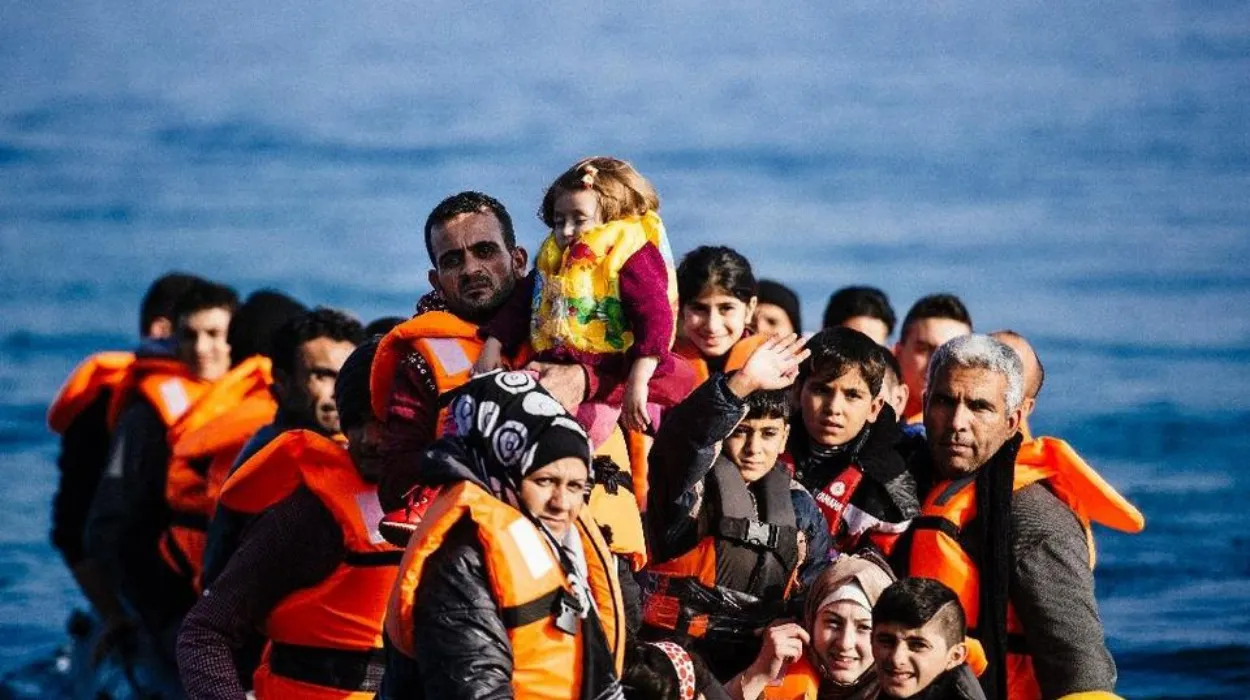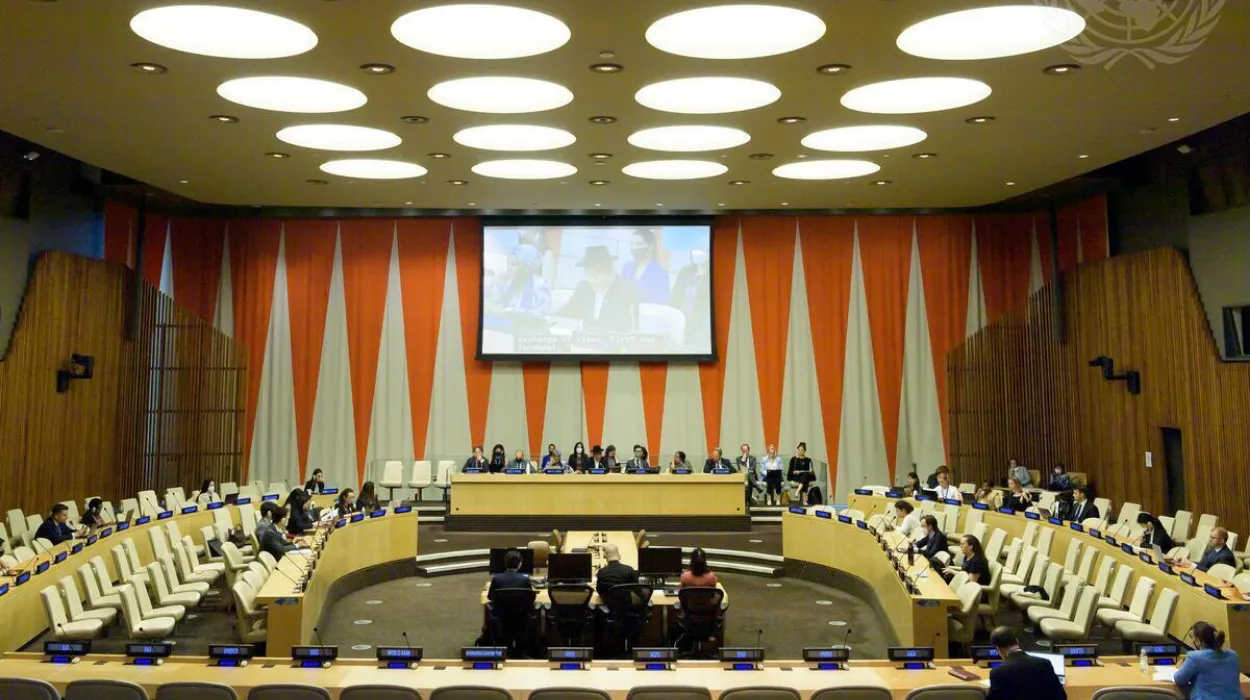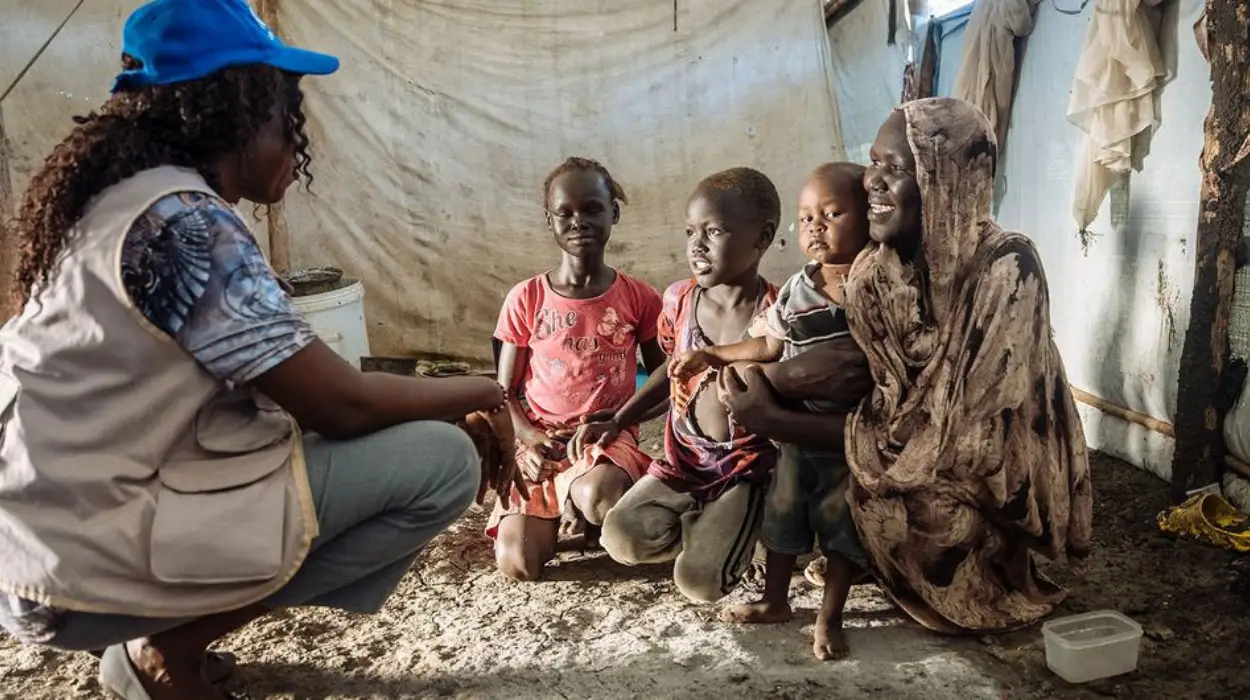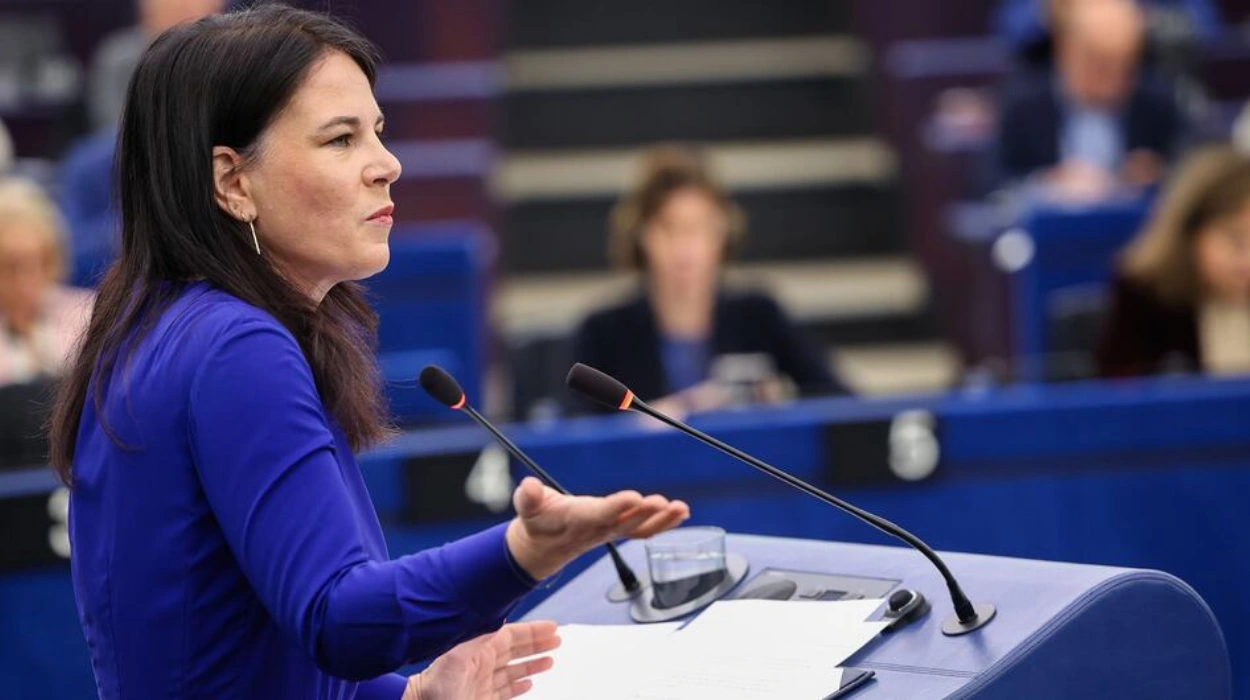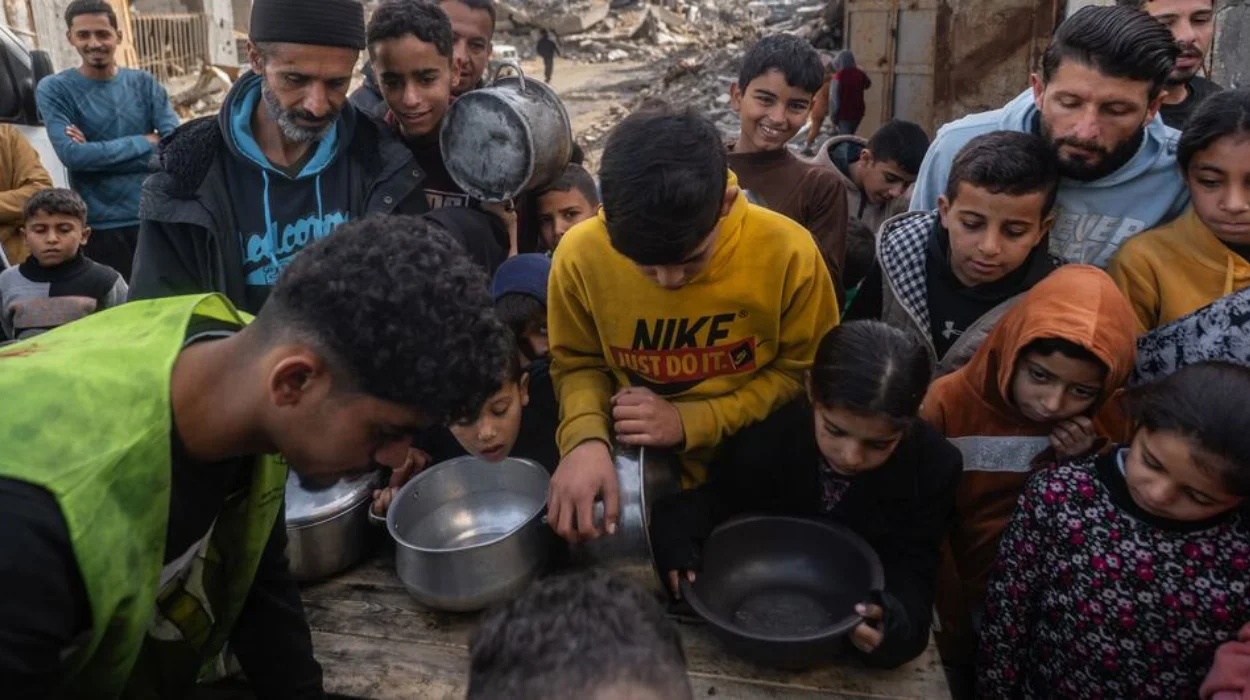At a high level United Nations conference in New York on July 2829, 2025, dozens of governments, legal experts and civil society groups were united in reconstituting efforts that had grown weary in seeking a two-state solution to the IsraeliPalestinian conflict. The conference, co-chaired by France and Saudi Arabia, was a highly uncommon attempt at multilateral mediation with the object to generate an outcome document directed in bringing an action that would have political, humanitarian and legal commitments to assist the establishment of a sovereign Palestinian state next to Israel.
That drive was after two years of severity in the case of intensifying instability such as the repercussions of the 2023 Gaza war, increases of Israeli settlement, and the realization that the progress of peace has remained stagnant over the past 10 years. UN Secretary-General Antonio Guterres has characterized the solution as being farther than ever and has indicated that the world needs to hit the reset button. Considering that Palestine has been recognized by over 130 countries in 2025 with additional recognitions taking place in 2025, the conference was a sign of new beginnings concerning the internationalization of Palestinian statehood and establishment of guidelines to eventually negotiate.
Diverging Positions Underscore a Polarized Geopolitical Landscape
Absence of Key Players Limits Immediate Outcomes
Although the event carried a great symbolic importance, the fact that Israel and the United States were not involved set the baseline of its reach in general. The U.S. The Trump administration refused to take part because the time was counterproductive, and Israel refused the bias of the conference. Such choices highlight the increasing discrepancy between the rights-driven rhetoric of the multilateral system and Israel and its closest supporters are pursuing more in the way of security-driven policies.
There was also the issue of revealing the difficulties of any internationally driven peace-making process in leaving out two of the most important stakeholders in any given peace process. Unless they are involved, the success of diplomatic results is bound to depend on the ability of the wider coalition to put adequate pressure or establish other structures to engage them once again in the future.
Growing Support for Palestinian Recognition
The platform was also used by the French President, Emmanuel Macron, who affirmed that France would recycle Palestine by 2025 during the general assembly of the United Nations in September 2025. The shift puts France on the same side as Spain, Ireland, Norway, and other governments that have previously recognized Palestinian statehood in the recent past months. France’s recognition would represent a significant shift within Western diplomacy, potentially prompting broader EU momentum and reshaping multilateral negotiations.
The Saudi Arabian Foreign Minister went as far as to point out that the problem in Gaza must be solved with the biggest emphasis being aforementioned as a way of “ending the conflict, rather than the war in Gaza”; that solution being offered by the SA on the regional level as a way of regional security and economic integration in the Middle East. As Saudi Arabia seeks greater weight in the diplomatic arena, especially with the lapse of recent attempts at normalization of its relationship with Israel, its co-hosting of the conference strengthens the overlap and interplay between the goals of peace and regional strategic interests.
The Legal and Humanitarian Foundations for Political Reengagement
Occupation and Accountability Under International Law
The situation that is of legal concern as suggested at the conference is the July 2024 International Court of Justice (ICJ) advisory opinion to the Arab League on the lawfulness of the Israeli occupation, which stated that the Israeli occupation was unlawful and it should be brought to an immediate end. The Palestinian envoy to the United Nations, Riyad Mansour, called on states to take measures of enforcement on the basis of adherence to the Charter of the UN and the Geneva Conventions. This call was echoed by several speakers who put the opinion of ICJ in perspective of a legal milestone in need of more than verbal approval.
There were also requests to further assist UNRWA and increased humanitarian infrastructure in the Gaza and West Bank where the human service provision is severely limited. The Human rights organizations said that any sustainable peace would have to be based on dignity and access to basic needs and humanitarian emergency in the form of damaged infrastructure and limited reconstruction has continued in the communities in Gaza.
Human Rights and the Role of Civil Society
The civil society organizations focused on the idea that the meaning of the conference was not limited to the political negotiations. The promotion of human rights systems in any future peace settlement, given the systematic violations in the occupied states, was also a major issue that they advocated. Both Amnesty International and Human Rights Watch reacted to arbitrary arrest, demolition of homes and censorship of movements inflicted to Palestinians.
These are also similar to the reports made by the UN in 2025, stating the rising violence of settlers and the amount of army action in Area C of the West Bank. The two aspects relate to not only breaches of international law but also to the undermining of the sustainability of a contiguous Palestinian state in the long-term.
Structural and Political Hurdles to Advancing the Peace Process
Internal Divisions and Fragile Governance
The disconnected political leadership among Palestinians persists to obstruct a collective representation. In the West Bank, the Palestinian Authority is still weak due to the legitimacy problems and financial issues, whereas Hamas is still the one who controls Gaza. Such internal faction fights complicate establishment of a solid delegation or enforcements of agreements made on international level.
Within Israel, the two-state solution has been publicly declared dead by the current right-wing coalition, due to the priority of national security and because of opposition to the ideas by the Israeli political system. Such stances have been bolstered by most Knesset members and a reversion to the negotiation table is currently politically unsustainable without either a marked change in popular opinion or leadership.
Demographic Pressures and Settlement Expansion
The Palestinian statehood is still facing territorial strain because Israel continues its settlement building. More than 750,000 settlers are living in the West Bank (including East Jerusalem), which is 90,000 more than in 2022. At the same time, the population of Palestine has increased to more than 5.5 million, a population that is skewed in the youth age-group thus exerting more pressure in governance, employment and land access.
These conflated demographic and geographic processes threaten to destabilize the current peace paradigms. The future solution should take into consideration the evolving facts on the ground such as the limitation of movements, control of water and integration of the economy, as well as sovereignty concerns.
Emerging Regional Dynamics and Strategic Calculations
Shifting Alliances and Regional Engagement
The 2025 summit took place at a place that was getting more and more oriented toward new alliances and competing interests. Saudi Arabia and the UAE remain to be a mediator between relations with both Israel and Iran, along with global powers, as Jordan and Egypt restated their long commitment of two-state success. Simultaneously, Israeli concerns on security have been raised by the continued Iranian role in the military and political sphere in Gaza as well as limited diplomatic zones of compromise.
European players are also claiming more leadership on the matter, and partially they are replacing the gap left by the withdrawal of the United States in multilateral forums. This is indicative of a shift in diplomacy aimed at creating new alliances of support to international law, humanitarian aid, and recognizing states, despite not having direct Israeli involvement.
The Role of International Forums and UN Mechanisms
The UN continues to be the axis of multilateral diplomacy about the conflict , although its authority is diluted by geopolitical aspects of power in the Security Council, and its resolutions lack enforcement. True, the General Assembly and the ICJ are useful avenues to make legal arguments, influence world opinion and put pressure in the form of and through norms.
Mary Robinson, a former UN High Commissioner of Human Rights, has hailed the 2025 conference as a critical stage to regain traction on peace and justice and took the event as an opportunity to remain engaged in terms of a sustained approach with a rights-based orientation. Her statements indicate that there is increasing agreement that the hard-nosed obstacles to peace can only be overcome by a broad, all-inclusive and responsible process.
The Weight of Expectations and the Future of Diplomacy
As 2025 progresses, the question is not whether the two-state solution remains desirable, but whether it remains viable. The UN conference has highlighted both enduring international consensus and the widening gap between aspirations and political realities. The absence of Israel and the United States left clear limitations, yet the coordinated support from dozens of countries points to a shifting diplomatic terrain.
France’s planned recognition of Palestine and the ICJ’s legal opinion may mark a decisive shift toward redefining the rules of engagement. But transforming these symbolic acts into meaningful change will require persistent international commitment, strategic diplomacy, and new models of engagement that address security, governance, and human rights simultaneously.
How global actors navigate this moment—whether they build on the momentum or revert to status quo diplomacy—will likely shape not just the future of the Israeli-Palestinian conflict, but the credibility of multilateral diplomacy in resolving long-standing global disputes.


